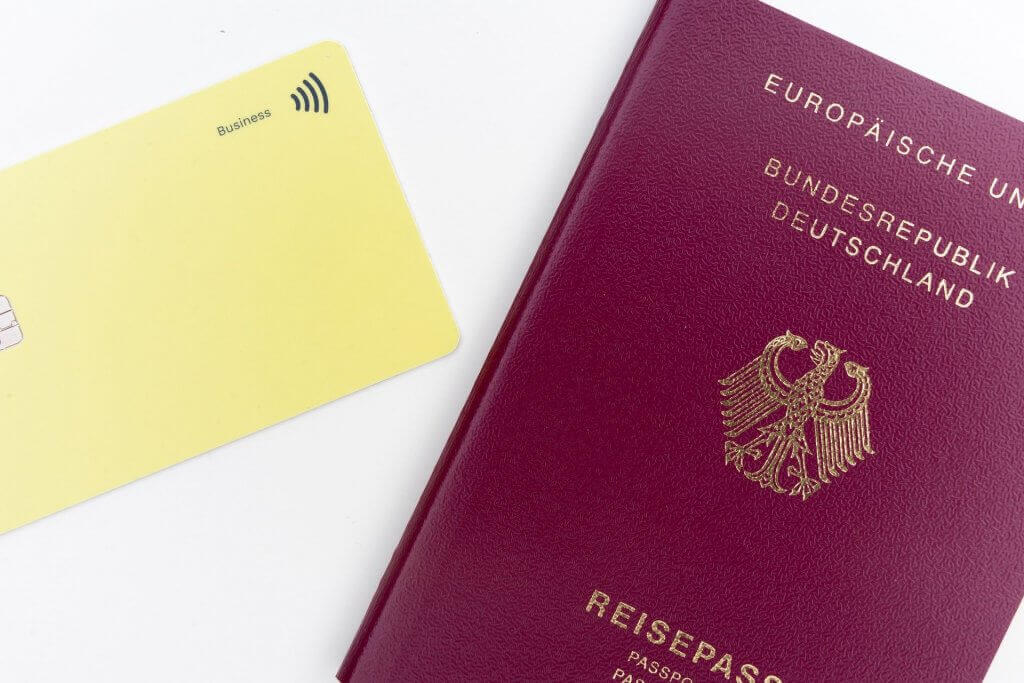1 – Official Institutions
If you wish to come to Germany from a third country to work, you will find the necessary information here. You have no current job offer or invitation of a german company?
If you couldn’t find a job before entering Germany, as a skilled worker with vocational training or a university degree, you have the opportunity to come to Germany for up to six months to look for a job.
If you are a foreigner who does not speak German and is looking for a job in Germany, there are a few official institutions that can help you:
- Federal Employment Agency (Bundesagentur für Arbeit): The Federal Employment Agency is the official agency responsible for managing employment services in Germany. They offer a variety of services to job seekers, including job search assistance, career guidance, and language courses.
- International Placement Services (Zentrale Auslands- und Fachvermittlung): The International Placement Services is a branch of the Federal Employment Agency that helps international job seekers find work in Germany. They offer services such as job search assistance, job placement, and language courses.
- Welcome Centers: Many cities and regions in Germany have Welcome Centers that offer support to new residents and job seekers. These centers provide information about the local job market, assistance with job search and application processes, and language courses.
- Chambers of Commerce: The Chambers of Commerce in Germany offer support to businesses and can be a good resource for job seekers. They provide information about the local job market, career fairs, and networking events.
It’s worth noting that while it is possible to find jobs in Germany without speaking German, the job market for non-German speakers is more limited, and many jobs require at least some knowledge of the language. It may be helpful to take language courses to improve your chances of finding employment in Germany.

Here you can all the official job offers:
Link: Official Employment Agency Germany – Job Offers
Whether you are allowed to work in Germany depends on your occupation, the type of work in Germany and also your nationality. As a matter of principle, you will require an offer of employment before you come to Germany. To this end, you should have already successfully applied from abroad for a job in Germany and received a binding promise of employment.
2 – Educated Professionals, Experts and Specialists
You wish to shorten the entry procedure?
On March 2023, Germany introduced a new and special procedure for skilled workers which facilitates and accelerates the entry of skilled workers. These are people which have a education and in best case working experience which a needed most.
Germany has a special visa category for experts and specialists who want to come and work in the country. The visa is called the “EU Blue Card” and is intended to attract highly skilled professionals from outside the European Union. Until now the EU Blue Card was the way for experts to enter germany.
Here are the general requirements and steps to obtain an EU Blue Card:
- Qualifications: You must have a recognized university degree or a qualification that is equivalent to a German degree.
- Job offer: You must have a job offer from a German company that pays a minimum annual salary of €55,200 (as of 2023). This threshold may be lower for certain professions, such as scientists, mathematicians, and engineers.
- Language skills: You must have a good command of the German language, at least at the B1 level of the Common European Framework of Reference for Languages (CEFR).
- Health insurance: You must have health insurance coverage that meets the requirements of the German statutory health insurance system.
- Application: You must apply for an EU Blue Card at the German embassy or consulate in your home country.
- Residence permit: Once you arrive in Germany, you will need to apply for a residence permit at the local Foreigners’ Registration Office (Ausländerbehörde).
- Follow the rules and regulations: As an EU Blue Card holder, you will need to comply with all the rules and regulations governing your employment and residence in Germany. Make sure you stay up-to-date with any changes in the law or regulations that affect your status.
New immigration law “Skilled Immigration Act”
Next to the “old” possibility to immigrate the EU Blue Card gives, Germany has recently introduced a new immigration law called the “Skilled Immigration Act” which aims to make it easier for skilled workers from outside the European Union to come and work in Germany. One of the key changes is the introduction of a points-based system that can be used to determine whether a foreign national qualifies for a work visa.
Under the new system called points system / opportunity card, in german “Punkte-System / Chancenkarte”, points are awarded for various factors such as education, work experience, language skills, and age. Applicants must score a minimum number of points to be eligible for a work visa. The points-based system is used in addition to the existing requirements for obtaining an EU Blue Card.
The EU Blue Card is still a valid option for highly skilled workers who have a job offer in Germany and meet the minimum salary requirement. However, the new points-based system allows for a more flexible and individualized approach to assessing the qualifications of foreign workers.
For example, if an applicant does not meet the minimum salary requirement for the EU Blue Card, they may still be eligible for a work visa if they score enough points in other areas, such as having a PhD or a high level of German language proficiency.
Overall, the Skilled Immigration Act and the new points-based system are intended to make it easier for skilled workers from outside the European Union to come and work in Germany, while also addressing the country’s labor shortages in certain sectors.
Please note that the above steps are general guidelines only, and there may be additional requirements depending on your individual situation. It is recommended that you seek professional advice to ensure that you are fulfilling all the necessary requirements.
You will find more informations about the latest job offers, under the keywords Points System and Chancenkarte Germany in this blog and newest updates in our newsletter and social media channels. Here we just give a short overview this for points are interesting to know.

You wish to shorten the entry procedure?
As a foreigner, there are several ways you can potentially shorten the entry procedure to Germany:
- Apply for a visa or residence permit in advance: If you are planning to stay in Germany for an extended period of time, you can apply for a visa or residence permit in advance of your trip. This can help streamline the entry process and make it easier for you to enter the country.
- Join a trusted traveler program: If you are a frequent traveler to Germany, you may be able to join a trusted traveler program such as the Registered Traveler Program. These programs allow pre-approved travelers to use expedited lanes at border crossings, which can significantly reduce wait times.
- Use automated border control systems: Germany has implemented automated border control systems at several airports, which allow travelers to complete the entry process quickly and easily. To use these systems, you will need to have a biometric passport and be a citizen of a country that is eligible for automated border control.
- Have all necessary documents ready: To expedite the entry process, make sure you have all necessary documents ready and available for inspection. This includes your passport, visa or residence permit, and any other required documentation.
It’s important to note that the entry procedure to Germany can vary depending on your nationality, the purpose of your trip, and other factors. It’s always a good idea to check the latest entry requirements and procedures with the German embassy or consulate in your home country before you travel.

3 – Want to start a company or work freelance in Germany?
If you are a non-EU foreigner who wants to work freelance in Germany, you will need to fulfill certain requirements and follow specific procedures. Here are some general steps you can take:
- Check your visa status: Make sure you have a valid visa that allows you to work as a freelancer in Germany. If you don’t have one yet, you will need to apply for a visa that specifically allows self-employment.
- Register your business: As a freelancer in Germany, you will need to register your business with the local authorities. This process is called “Gewerbeanmeldung” and you will need to do it at the local trade office (Gewerbeamt).
- Get a tax number: You will need to register for tax purposes and obtain a tax number from the tax office (Finanzamt). You will need to do this as soon as possible after registering your business.
- Obtain health insurance: In Germany, everyone is required to have health insurance. As a freelancer, you will need to obtain private health insurance or statutory health insurance.
- Open a business bank account: You will need to have a separate bank account for your business transactions. You can open a business bank account at any German bank.
- Keep accurate records: As a freelancer in Germany, you will be required to keep accurate records of all your business activities, including income, expenses, and invoices.
- Follow the rules and regulations: As a freelancer in Germany, you will need to comply with all the rules and regulations governing self-employment. Make sure you stay up-to-date with any changes in the law or regulations that affect your business.
- Seek advice if necessary: If you are unsure about any aspect of working as a freelancer in Germany, seek advice from a lawyer, tax advisor, or other professional.
Please note that the above steps are general guidelines only, and there may be additional requirements depending on your individual situation. It is recommended that you seek professional advice to ensure that you are fulfilling all the necessary requirements.
4 – Seasonal Workers
If you are a non-EU foreigner who wants to work as a seasonal worker in Germany, for example in the farming branch, you will need to obtain a seasonal work visa. Here are some general steps you can take:
- Find a job offer: Look for employers in Germany who are hiring seasonal workers. You can search for job offers online or contact German job agencies that specialize in seasonal work.
- Apply for a visa: Once you have a job offer, you will need to apply for a seasonal work visa at the German embassy or consulate in your home country. You will need to provide documents such as your passport, job offer, and proof of health insurance.
- Obtain health insurance: In Germany, everyone is required to have health insurance. As a seasonal worker, you will need to obtain private health insurance or statutory health insurance.
- Apply for a residence permit: After you arrive in Germany, you will need to apply for a residence permit. You can do this at the local Foreigners’ Registration Office (Ausländerbehörde).
- Follow the rules and regulations: As a seasonal worker in Germany, you will need to comply with all the rules and regulations governing employment. Make sure you stay up-to-date with any changes in the law or regulations that affect your work.
- Seek advice if necessary: If you are unsure about any aspect of working as a seasonal worker in Germany, seek advice from a lawyer, immigration consultant, or other professional.
Please note that the above steps are general guidelines only, and there may be additional requirements depending on your individual situation. It is recommended that you seek professional advice to ensure that you are fulfilling all the necessary requirements.
For more informations please follow the links below this article or subsribe our newsletter, social media for all updates and news around this topic!
https://www.instagram.com/jobsgermany.info/
https://www.facebook.com/jobsgermany.info/
https://www.tiktok.com/jobsgermany.info/
